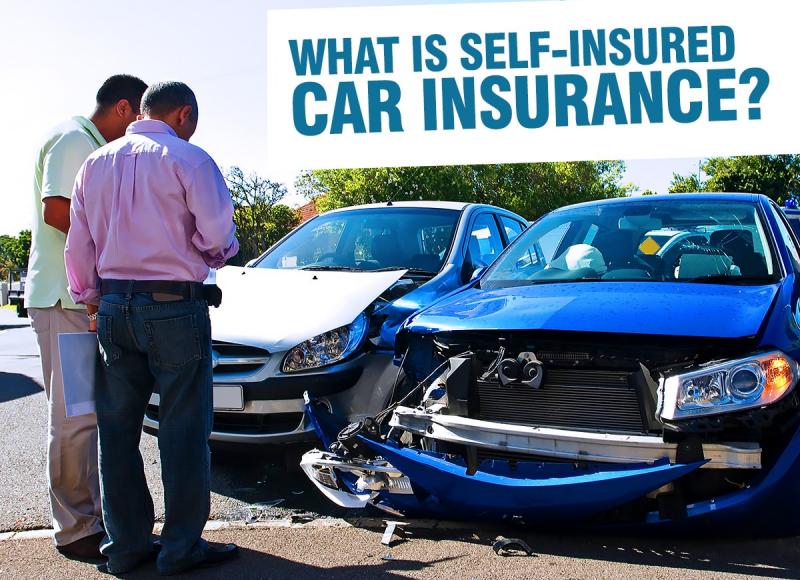
It is a common belief that car insurance from a major provider is necessary in order to drive legally in each state. Most states, however, allow drivers to insure themselves. While it is a lesser known fact that self-insurance is an option, there are a number of reasons that more people are not doing it. With this explanation, you will learn more about how self-insurance works, and whether or not it is a good option for you.
How Does Self-Insurance Work?
Self-insurance is a something that works best for people who have a lot of money or a large number of vehicles. People buy automobile insurance to cover the costs of liability and damages that happen when an automobile accident occurs. Instead of keeping savings available to cover these costs, people pay an automobile insurance company for coverage instead. This allows people to pay for their insurance coverage with a monthly fee, which is more manageable for most people. The insurance company then covers the liability if a crash does happen.
Not everyone needs an insurance company to pay for potential liabilities from an automobile or other vehicle accident. If you can prove that you can cover the required liability on your own, you may be able to provide insurance for yourself. Essentially, self-insuring is a way for people to reduce their insurance costs by creating a reserve fund from which to pay out any insurance needs if you do end up coming across them.
Should You Create a Self-Insurance Reserve Fund?
When you utilize a self-insurance fund, you are assuming your own risk instead of paying someone else to assume it for you. If you have the funds available, it may be a smart plan to self-insure. One of the most practical uses for this is to eliminate specific types of insurance policies. Some people who have the funds available and are not utilizing expensive vehicles, may decide to create an insurance fund to pay for a new vehicle because they know they are not likely to repair the other vehicle either way, as an example.
Use Self-Insurance to Make Home and Auto Insurance Deductibles Larger
Some areas of the country allow people to create their own self-insurance fund and have it legally function as liability insurance. Other areas of the country do not allow self-insurance at all. Contacting your Department of Motor Vehicles can be a great way to get more information about whether or not self-insurance is available for you. Even when it is available, it is not always the best choice. Insurance companies provide a lot of benefits and do not require capital to be placed into a fund in order to drive legally.
Some people also use self-insurance to provide the means for making their automobile insurance deductibles larger, therefore saving money on the premiums. No special arrangements are needed regarding your policy with your insurance company to do this. All you need to do is reserve cash to pay for the higher deductible in case an accident occurs.
Can Anyone Get Self-Insurance?
This can vary state by state, but as long as you fulfill the requirements for proof of financial responsibility, and your state allows self-insurance, you can utilize it. Each state has different conditions, with some states requiring that people have a specific number of cars in order to qualify for self-insurance. Some states only require a minimum amount of money to be set aside in order to meet the minimum qualifications. Checking the local regulations is the best way to determine what the requirements are for your specific state.
Are Cash Reserves Enough to Prove Self-Insurance?
Again, this depends on the state you are in and the laws that your state has put forward in regards to providing proof of financial responsibility. If you can meet the minimum requirements, you can qualify. Some states have necessary qualifications that need to be fulfilled which are not related to the amount of cash reserves you have. This can include having a specific number of cars to self-insure, and other possible requirements as well, such as:
Depositing Funds To The State - In order to get self-insurance in some states, your cash reserve may need to be deposited into a state agency. This makes sure that the funds are available if they are required. In these cases, it is common for a certificate that states you have self-insurance to be carried when you drive.
Surety Bonds - In some areas, bonds must be purchased from a licensed surety company.
Certificates Of Self-Insurance - In some states there is a requirement to display your certificate of self-insurance.
Can Anyone Get Self-Insurance?
Most people cannot afford to get self-insurance, it costs a lot of money and in some cases requires a large number of cars. In some states, people may need to own more than 25 vehicles in order to qualify for self-insurance.
Conclusion
There are plenty of people in the world who have never heard of self-insurance and do not even know that it exists. This is because it does not apply to the majority of the population. It is, however, a way for people who have extra cash on hand to reduce their insurance burden. It can be a good investment for people who have enough money or vehicles to pursue it. If self-insurance sounds like an option for you, the best plan is to contact your insurance company and speak with them more about the possibility.